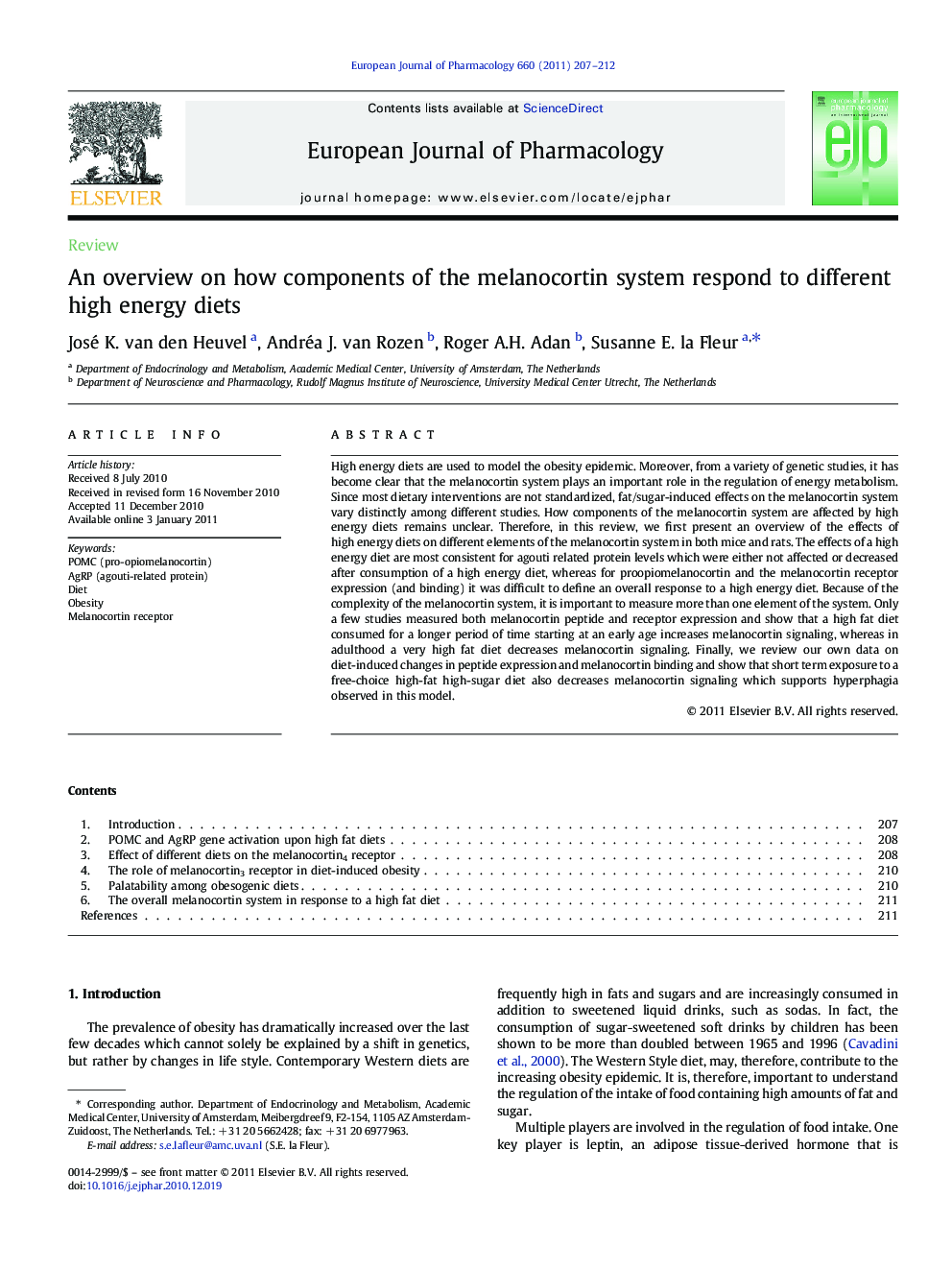| Article ID | Journal | Published Year | Pages | File Type |
|---|---|---|---|---|
| 2532803 | European Journal of Pharmacology | 2011 | 6 Pages |
High energy diets are used to model the obesity epidemic. Moreover, from a variety of genetic studies, it has become clear that the melanocortin system plays an important role in the regulation of energy metabolism. Since most dietary interventions are not standardized, fat/sugar-induced effects on the melanocortin system vary distinctly among different studies. How components of the melanocortin system are affected by high energy diets remains unclear. Therefore, in this review, we first present an overview of the effects of high energy diets on different elements of the melanocortin system in both mice and rats. The effects of a high energy diet are most consistent for agouti related protein levels which were either not affected or decreased after consumption of a high energy diet, whereas for proopiomelanocortin and the melanocortin receptor expression (and binding) it was difficult to define an overall response to a high energy diet. Because of the complexity of the melanocortin system, it is important to measure more than one element of the system. Only a few studies measured both melanocortin peptide and receptor expression and show that a high fat diet consumed for a longer period of time starting at an early age increases melanocortin signaling, whereas in adulthood a very high fat diet decreases melanocortin signaling. Finally, we review our own data on diet-induced changes in peptide expression and melanocortin binding and show that short term exposure to a free-choice high-fat high-sugar diet also decreases melanocortin signaling which supports hyperphagia observed in this model.
